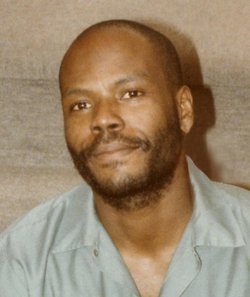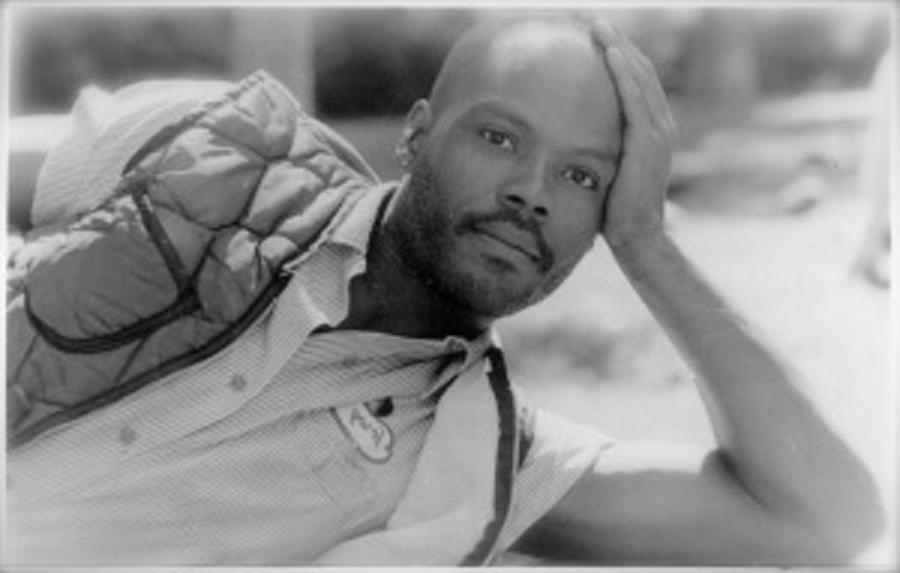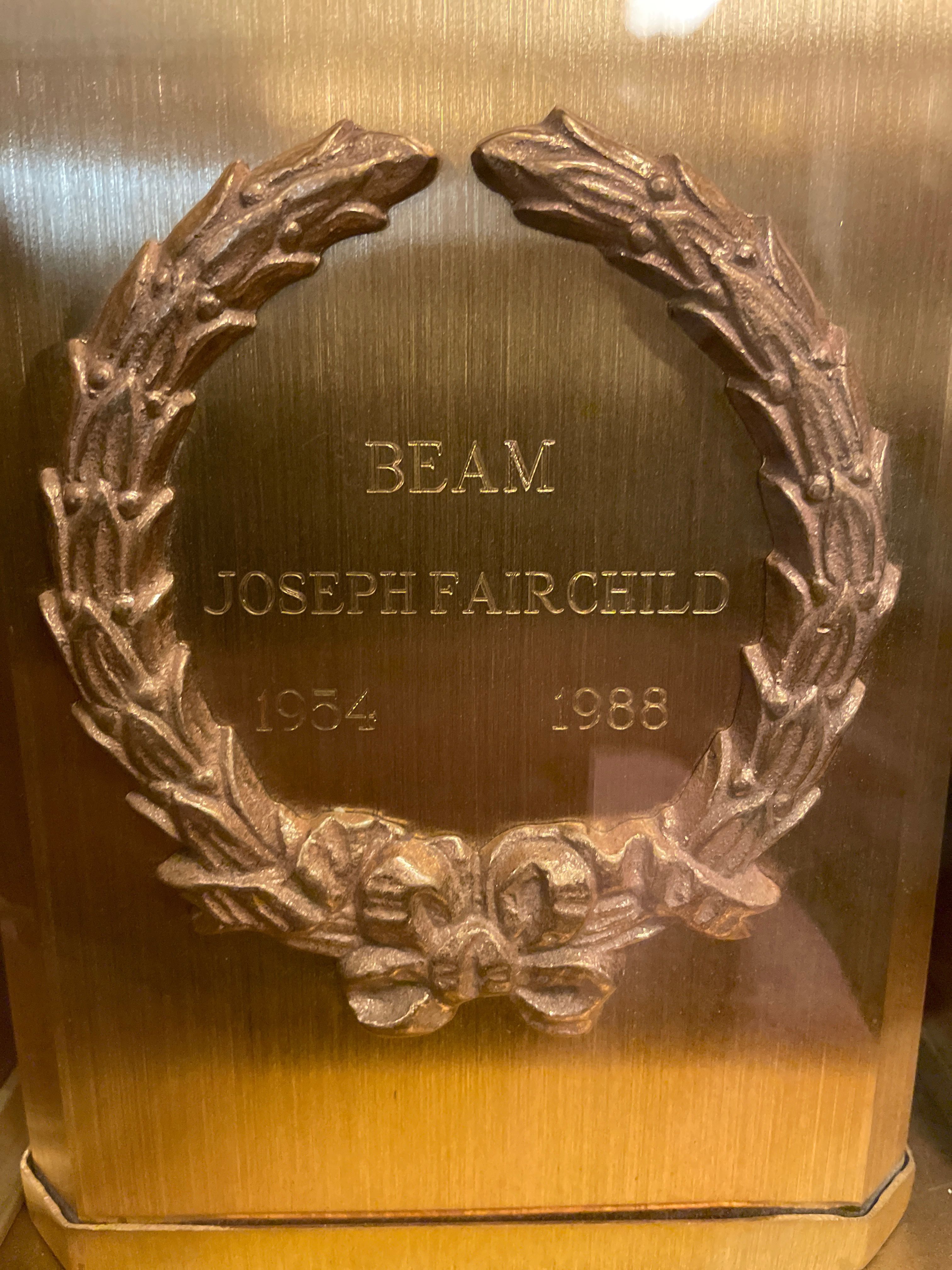Joseph F. Beam, a writer and a leading spokesman for the black gay community, was found dead Tuesday at his Center City home, three days before his 34th birthday. He had been ill for the last year with respiratory and stomach ailments, his family said.
A conclusion in the case has not been reached by the Medical Examiner's Office, but he is believed to have died of natural causes, a spokesman said.
Mr. Beam was noted for editing In the Life, an 1986 anthology of work by black gay writers. Sparked by Mr. Beam's frustration over the absence of works by blacks in gay literature, the book has been widely described as the first of its kind.
In the book's introduction, Mr. Beam wrote, "The bottom line is this: We are black men who are proudly gay. What we offer is our lives, our loves, our visions. . . . We are coming home with our heads held up high."
After the book's publication - as he gave lectures and appeared at bookstores across the country - Mr. Beam developed a national reputation as an articulate, sensitive voice for the black gay community.
"For the first time in that book, black gay men got to tell about their lives and experiences in their own words. Joe was a pioneer," said James Roberts, a contributor who also worked with Mr. Beam on other projects.
"His book was a major contribution not only to the black gay community but to the black community at large, which has often denied the existence of gays within it," said the Rev. Darlene Garner, a founding board member of the National Coalition of Black Lesbians and Gays.
The anthology was not Mr. Beam's only venture into the literary world.
Several years ago, he became founding editor of the national magazine Black/Out. Mr. Beam served on the board of directors of the National Coalition of Black Lesbians and Gays, which published the magazine.
He also had worked as a columnist for Au Courant and as a contributing editor for the magazine Blacklight. His work has been published in the Advocate, the Gay Community News, the Philadelphia Gay News, the New York Native, Blackheart and the Windy City Times, as well as the Painted Bride Quarterly.
"He was a national figure in the gay and lesbian world," said Ed Hermance, a friend and owner of Giovanni's Room, a gay, lesbian and feminist bookstore.
Among his most memorable pieces at the Philadelphia Gay News, said managing editor Tommi Avicolli, was an extensive interview several years ago with civil rights activist Bayard Rustin.
"Joe did excellent work - well-written, well-crafted and well-thought out," Avicolli said. ". . . He was a very articulate voice speaking about the experience of being black and gay. A lot of people were moved by him."
Six feet tall, sturdy and mustachioed, with penetrating eyes and a distinct assuredness, Mr. Beam had been a visible leader in the black gay community since the early 1980s. He had long been proud of being black. In his mid- to late 20s, he also made it clear that he was proud of being gay, those close to him said.
Though ultimately a leading advocate for causes important to gay blacks, Mr. Beam was not without personal struggles over the issues. He grew angry at injustice. He seemed at times tormented by society's slowness in accepting - even recognizing - gay blacks, those close to him said.
It was that frustration that triggered his landmark book.
In 1984, he placed an advertisement in the Philadelphia Gay News, calling for black gay writers with the words, "Visibility is survival."
A collection of essays, poems, interviews and short stories, In the Life included works by several recognized authors but was primarily a volume by those largely unknown.
Mr. Beam poured himself into editing their manuscripts.
In the book, he described his role: "Not only was I an editor, but often was a confidant and friend to the brothers who submitted their work. I listened to their stories of failed loves, tales of looking for employment. . . . Time after time, their letters and phone calls catapulted me past moments of lethargy and depression. We supported each other."
It was on a personal level that many remembered Mr. Beam, describing him as a man who combined thoughtfulness with a lively spirit.
"What stands out was his openness and willingness to be present with people and give whatever he could, even at personal sacrifice," said Ms. Garner. Mr. Beam, who considered himself spiritual but not religious, used to attend her services at Metropolitan Community Church in Center City as a gesture of support, Ms. Garner said.
Reared in West Philadelphia, the son of a bank guard and a school counselor, Mr. Beam attended St. Joseph School for Boys in Clayton, Del., and Malvern Preparatory School before graduating in 1972 from the old St. Thomas More High School in West Philadelphia.
He went to Franklin College of Indiana, earning a bachelor's degree in 1976. Then he returned to Philadelphia to write.
Mr. Beam also worked in sales at several bookstores, including Giovanni's Room, and as a waiter at several restaurants, including Bread & Co. and Saladalley.
Recently he had begun work on a second anthology, tentatively titled Brother to Brother, the title of an essay he wrote in the first anthology. He considered that essay one of his best works.
"He wanted his words to be a beacon that would inspire and inflame the passion of the gay community and the black community," said Ms. Garner.
His words did just that, those who knew him said.
"He has to be remembered for helping to lead us out of our silence - and by us, I mean black gay men, who heretofore had not been speaking out through literature," said Essex Hemphill, a poet who contributed to Mr. Beam's book. ''He has greatly enriched the community at large."
He was a member of the Black Writers Guild and won several awards for his efforts.
Surviving are his parents, Dorothy and Sun F. Beam; a foster sister, Addie Lee, and a foster brother, Charles Saunders.
A memorial service is scheduled for 7 p.m. Thursday at St. Peter Church of Christ, 1200 S. 47th St.
Contributions may be made to the Joseph F. Beam Memorial Scholarship Fund for creative-writing students at Temple University, in care of Marie Inyang, PSFS Building, 12 S. 12th St. Philadelphia 19107.
Joseph F. Beam, a writer and a leading spokesman for the black gay community, was found dead Tuesday at his Center City home, three days before his 34th birthday. He had been ill for the last year with respiratory and stomach ailments, his family said.
A conclusion in the case has not been reached by the Medical Examiner's Office, but he is believed to have died of natural causes, a spokesman said.
Mr. Beam was noted for editing In the Life, an 1986 anthology of work by black gay writers. Sparked by Mr. Beam's frustration over the absence of works by blacks in gay literature, the book has been widely described as the first of its kind.
In the book's introduction, Mr. Beam wrote, "The bottom line is this: We are black men who are proudly gay. What we offer is our lives, our loves, our visions. . . . We are coming home with our heads held up high."
After the book's publication - as he gave lectures and appeared at bookstores across the country - Mr. Beam developed a national reputation as an articulate, sensitive voice for the black gay community.
"For the first time in that book, black gay men got to tell about their lives and experiences in their own words. Joe was a pioneer," said James Roberts, a contributor who also worked with Mr. Beam on other projects.
"His book was a major contribution not only to the black gay community but to the black community at large, which has often denied the existence of gays within it," said the Rev. Darlene Garner, a founding board member of the National Coalition of Black Lesbians and Gays.
The anthology was not Mr. Beam's only venture into the literary world.
Several years ago, he became founding editor of the national magazine Black/Out. Mr. Beam served on the board of directors of the National Coalition of Black Lesbians and Gays, which published the magazine.
He also had worked as a columnist for Au Courant and as a contributing editor for the magazine Blacklight. His work has been published in the Advocate, the Gay Community News, the Philadelphia Gay News, the New York Native, Blackheart and the Windy City Times, as well as the Painted Bride Quarterly.
"He was a national figure in the gay and lesbian world," said Ed Hermance, a friend and owner of Giovanni's Room, a gay, lesbian and feminist bookstore.
Among his most memorable pieces at the Philadelphia Gay News, said managing editor Tommi Avicolli, was an extensive interview several years ago with civil rights activist Bayard Rustin.
"Joe did excellent work - well-written, well-crafted and well-thought out," Avicolli said. ". . . He was a very articulate voice speaking about the experience of being black and gay. A lot of people were moved by him."
Six feet tall, sturdy and mustachioed, with penetrating eyes and a distinct assuredness, Mr. Beam had been a visible leader in the black gay community since the early 1980s. He had long been proud of being black. In his mid- to late 20s, he also made it clear that he was proud of being gay, those close to him said.
Though ultimately a leading advocate for causes important to gay blacks, Mr. Beam was not without personal struggles over the issues. He grew angry at injustice. He seemed at times tormented by society's slowness in accepting - even recognizing - gay blacks, those close to him said.
It was that frustration that triggered his landmark book.
In 1984, he placed an advertisement in the Philadelphia Gay News, calling for black gay writers with the words, "Visibility is survival."
A collection of essays, poems, interviews and short stories, In the Life included works by several recognized authors but was primarily a volume by those largely unknown.
Mr. Beam poured himself into editing their manuscripts.
In the book, he described his role: "Not only was I an editor, but often was a confidant and friend to the brothers who submitted their work. I listened to their stories of failed loves, tales of looking for employment. . . . Time after time, their letters and phone calls catapulted me past moments of lethargy and depression. We supported each other."
It was on a personal level that many remembered Mr. Beam, describing him as a man who combined thoughtfulness with a lively spirit.
"What stands out was his openness and willingness to be present with people and give whatever he could, even at personal sacrifice," said Ms. Garner. Mr. Beam, who considered himself spiritual but not religious, used to attend her services at Metropolitan Community Church in Center City as a gesture of support, Ms. Garner said.
Reared in West Philadelphia, the son of a bank guard and a school counselor, Mr. Beam attended St. Joseph School for Boys in Clayton, Del., and Malvern Preparatory School before graduating in 1972 from the old St. Thomas More High School in West Philadelphia.
He went to Franklin College of Indiana, earning a bachelor's degree in 1976. Then he returned to Philadelphia to write.
Mr. Beam also worked in sales at several bookstores, including Giovanni's Room, and as a waiter at several restaurants, including Bread & Co. and Saladalley.
Recently he had begun work on a second anthology, tentatively titled Brother to Brother, the title of an essay he wrote in the first anthology. He considered that essay one of his best works.
"He wanted his words to be a beacon that would inspire and inflame the passion of the gay community and the black community," said Ms. Garner.
His words did just that, those who knew him said.
"He has to be remembered for helping to lead us out of our silence - and by us, I mean black gay men, who heretofore had not been speaking out through literature," said Essex Hemphill, a poet who contributed to Mr. Beam's book. ''He has greatly enriched the community at large."
He was a member of the Black Writers Guild and won several awards for his efforts.
Surviving are his parents, Dorothy and Sun F. Beam; a foster sister, Addie Lee, and a foster brother, Charles Saunders.
A memorial service is scheduled for 7 p.m. Thursday at St. Peter Church of Christ, 1200 S. 47th St.
Contributions may be made to the Joseph F. Beam Memorial Scholarship Fund for creative-writing students at Temple University, in care of Marie Inyang, PSFS Building, 12 S. 12th St. Philadelphia 19107.





